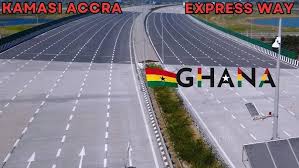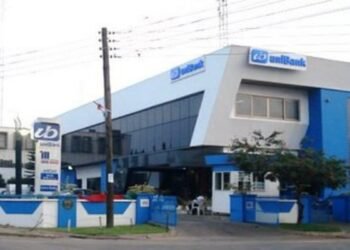The Presidential aspirant and founder of the All People’s Congress (APC), Mr. Hassan Ayariga has stated that when elected into office come December 7, 2020, his government will compel each citizen of the country to pay GHS8,000 so as to help the country pay off its huge debt stock.
He said this while speaking at the minority political parties and independent candidates’ election debate at the University of Professional Studies (UPSA) in Accra last night, Thursday 15th October 2020.
“… I spoke about debt stock recovery, and I, as the president, will pay GHS8, 000 and my family. Every Ghanaian owes GHS8, 000 of the debt stock. If we begin to pay our debt gradually we will be understanding the reason why we are borrowing. We have borrowed so much and there is practically nothing to show.”
According to Mr. Ayariga, the country has borrowed so much with nothing to show. So, the first thing to do to reduce the debt is for the country to increase production and stop borrowing.
In addition to this, Mr. Ayariga pointed out that there is the need to cut down on unnecessary expenditure so as not to increase the already high debt stock. He also suggested the need to issue bonds to be able to raise enough revenue locally to finance our debt.
Another way Mr. Ayariga believes the country can reduce its debt stock is to tackle corruption.
“We will deal with corruption. We will put up an integrated system called National Data System to curb on corruption and how people generate money and how people spend. When we are able to curtail expenditure of individuals in this country, I’m very sure corruption will be cut down and our debt stock will not rise to where it is without anything to show.”
However, the Presidential aspirant of the Liberal Party of Ghana (LPG), Kofi Akpaloo believes that the current debt stock is not a major issue and his government will borrow more to grow the economy when his party is elected into office come December 7, 2020.
“…to me it’s peanut, we need to borrow more to grow the economy.”

According to Mr. Akpaloo, the best strategy is to have a capital and this capital can come in two forms, equity and the debt but debt is always the cheapest of the two.
“…the debt is also always cheaper to run any investment or any business than to use equity. Because equity is very expensive. So my government will borrow the money to invest in this country, to grow every sector of the economy, to generate jobs, and to grow and create wealth”.
Mr. Akpaloo further indicated that there is the need to grow the economy to be able to generate revenue. But when the country is not able to increase its revenue but thinks of cutting costs, the minimum the country can go is zero. But revenue has no limit and there is the need to increase revenue.
The Presidential candidate of the Conventions Peoples’ Party (CPP), Ivor Greenstreet also differed with Mr. Ayariga on the issue of the citizens being compelled to pay off the debts owed by the country,
“I see no reason why the ordinary citizen of Ghana should be compelled to pay for the debt accumulated by either inefficiencies or the corrupt practices by others. There are other ways of internally generating revenue. We can control capital inflows; we can earn more from our natural resources. We can be far more efficient in our own government practices. There are many things we can do to recover GHS230 billion debt that we are having over our heads”.

Miss Brigitte Dzogbenuku of the Progressive People’s Party (PPP), who doubles as the Presidential aspirant of the party, also believes that there is nothing wrong with borrowing but what is wrong is the fact that the country has not been able to put the monies borrowed into judicious use.
“What we are talking about is value for debt so there is really nothing wrong with borrowing because all countries borrow. It is when you don’t use the funds wisely, that’s why we find ourselves deep in debt”.

Still on how best to reduce the debt burden on the country, the presidential aspirant of the People’s National Convention (PNC), Mr. David Apasera said;
“The issue here is for us to begin to export and restrain ourselves from importation. That is how we can reduce our debt burden. If we are exporting finished products, petroleum products, certainly we are generating more money. If we generate more money, it can even take care of our development projects without looking outside to borrow. And that is how we can reduce the debt burden.

“We can also increase our domestic production, go into the valleys, acquire lands, deploy our farmers there, support them and build agro-industries so that when they produce, we will have it taken through the industries there, and then we can export some. And out of that, we will generate income, and out of that income, we can put 30% aside to help the communities where we are taking these produce from. And certainly, by so doing, we will be generating enough income, and you will be reducing your debt.”


















